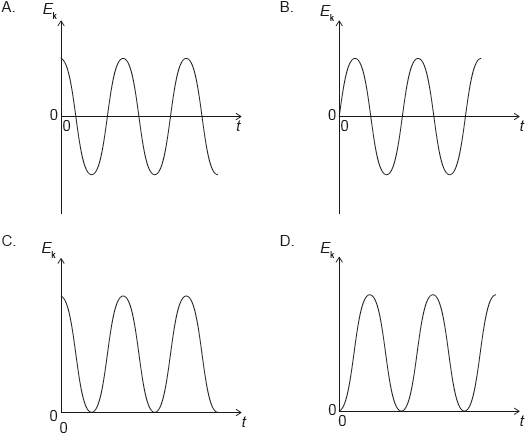| Date | November 2020 | Marks available | 1 | Reference code | 20N.2.HL.TZ0.7 |
| Level | Higher level | Paper | Paper 2 | Time zone | 0 - no time zone |
| Command term | Outline | Question number | 7 | Adapted from | N/A |
Question
A vertical solid cylinder of uniform cross-sectional area floats in water. The cylinder is partially submerged. When the cylinder floats at rest, a mark is aligned with the water surface. The cylinder is pushed vertically downwards so that the mark is a distance below the water surface.
At time the cylinder is released. The resultant vertical force on the cylinder is related to the displacement of the mark by
where is the density of water.
The cylinder was initially pushed down a distance .
Outline why the cylinder performs simple harmonic motion when released.
The mass of the cylinder is and the cross-sectional area of the cylinder is . The density of water is . Show that the angular frequency of oscillation of the cylinder is about .
Determine the maximum kinetic energy of the cylinder.
Draw, on the axes, the graph to show how the kinetic energy of the cylinder varies with time during one period of oscillation .
Markscheme
the «restoring» force/acceleration is proportional to displacement ✓
Allow use of symbols i.e. or
Evidence of equating «to obtain » ✓
OR ✓
Answer to at least s.f.
« is a maximum when hence» ✓
✓
energy never negative ✓
correct shape with two maxima ✓
Examiners report
This was well answered with candidates gaining credit for answers in words or symbols.
Again, very well answered.
A straightforward calculation with the most common mistake being missing the squared on the omega.
Most candidates answered with a graph that was only positive so scored the first mark.


